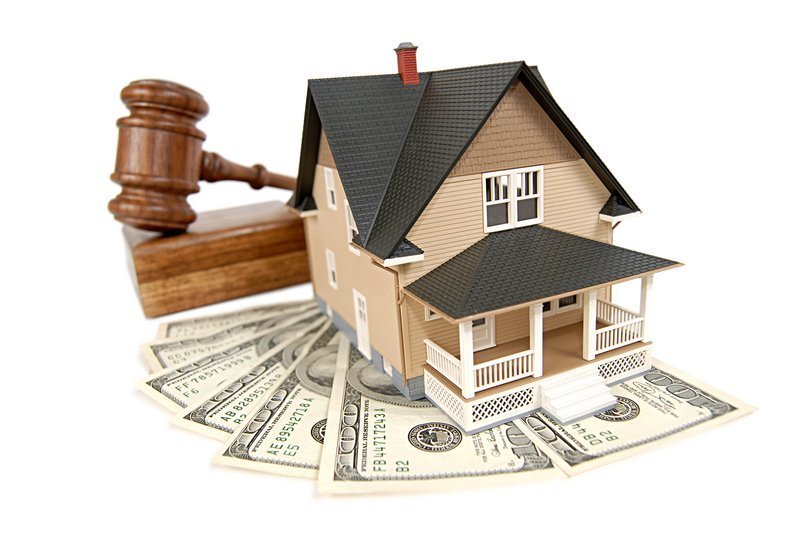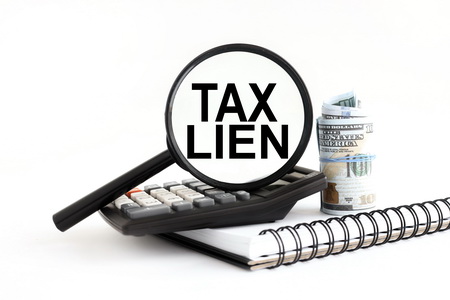All Categories
Featured
Table of Contents
In a lot of cases, you will certainly need to outbid various other financiers by supplying to pay a higher premium (tax liens investing). This costs is usually much less than the real quantity of tax obligations owed, however it depends on the capitalist to decide if the risk deserves the collection benefit. In the majority of places, real estate tax are around one percent of the residential or commercial property's value

Tax obligation lien financiers make their cash on the rate of interest settlements they collect when the property owner repays the tax obligations they owe. In some places, these rate of interest are as high as 18 percent, which is extra than the typical charge card rate of interest rate. Home owners can pay what they owe simultaneously, or they can take place a layaway plan ranging from one to three years.
How Does Tax Lien Investing Work
In the above instance, somebody with an exceptional tax debt of $4k (two years of back tax obligations) would be providing a tax lien owner with potentially as much as $720 in passion settlements, functioning with the 18 percent rates of interest we stated previously. One of the best benefits to tax lien investors is the potential to acquire a new residential property for their property portfolio, without needing to pay its market value.

This is a technique that numerous genuine estate capitalists make use of to obtain underestimated homes or troubled properties. And if the property owner does pay their debts, they will still make an earnings in the type of interest. It's a win-win situation for the tax obligation lien capitalist. There are some disadvantages to tax lien investing.
When the lien is paid, the capitalist has to go on and look for a new financial investment. Certainly, if the building proprietor is still in default, the lien owner will obtain the residential or commercial property, which could become a persisting resource of earnings. A person who buys a tax lien might find themselves knotted with other liens on the residential property, particularly if they finish up claiming the property on the occasion that the debt goes overdue.
This might result in great deals of legal battles, which is why it is essential to work with attorneys and tax obligation consultants that understand points like act vs title. and can aid with executing due persistance on a residential property. The laws around tax lien investing (and associated issueslike foreclosing on lessees) are not uniform across states that supply financiers the capability to join a tax lien sale.
Offered that tax obligation liens are typically cost public auction, contending bidders will certainly bid up the premium and bid down the rates of interest that can be gathered on the unpaid tax obligations. The champion of the public auction will be the genuine estate investor that is paying the highest possible premium and obtaining the least expensive rate of interest in return.
Tax Lien Investment
In this blood vessel, tax lien investing is a little bit extra sport-like than standard easy ways of making income. The very first point you'll wish to do is get knowledgeable about the location you're thinking about in terms of the genuine estate market. Bear in mind that one advantage of becoming a lienholder is accumulating the building if the debt goes overdue, so you will require to understand where that residential or commercial property is.
As soon as you have actually figured out these details out, you require to contact your local county treasurer's workplace to discover when and where the next tax obligation lien auction is being held. These auctions are commonly kept in individual, but in today's day and age, a lot of have actually transitioned to on-line locations.

Most neighborhood papers release these lists every year or semiannually. This can give you a great idea about upcoming possibilities. Keep in mind that home tax obligations are usually one percent of the property worth, but unsettled tax obligations collecting over a number of years could be a more substantial quantity. You can take advantage of your very own money books or check out choices like property crowdfunding to acquire the capital you need.
Investing In Secured Tax Lien Certificates
it has the added perk of acquiring the home if the financial obligation continues to be unsettled. While it can be a rewarding opportunity for the financier, it does call for some tactical footwork. Occupants and homeowner do have legal protections that make tax lien investing a more engaged process than just bidding to acquire a debt and waiting to gather the settlement.
Buying tax obligation liens entails acquiring a legal claim on a home due to overdue property tax obligations. This method of investing has obtained appeal because of its capacity for high returns with relatively low first funding. Tax obligation liens are usually cost public auctions, and the process can vary depending on the location.

Capitalists look for out tax liens for several reasons: 1. Reduced Initial Investment: Tax lien investing typically requires a small amount of money to start, making it easily accessible to a broad range of investors.
Investing Tax Liens
3. Residential property Procurement: If the residential or commercial property proprietor stops working to pay the past due tax obligations and interest within the redemption duration, the capitalist might deserve to foreclose and obtain the home. Develop an account online, or call us for more information. When capitalists buy a tax obligation lien, they pay the overdue tax obligations on a building and get a tax obligation lien certificate.
There are 2 possible results: 1. Payment by the Homeowner: The homeowner settles the past due taxes plus rate of interest within a given duration, and the financier receives the repayment with interest. This is one of the most common outcome. 2. Repossession: If the building owner does not settle the tax obligations within the redemption duration, the capitalist can start repossession procedures to acquire the residential property.
The self-directed IRA acquisitions the lien certificate and pays connected fees. Suppose the homeowner pays back the lien, and the proceeds return to the IRA. If the building is confiscated and marketed, the sale earnings also go back to the individual retirement account, potentially growing the retired life cost savings. Tax Lien: The government markets a lien on the building due to unsettled tax obligations.
Tax Lien Investing Arizona
Tax Act: The government sells the actual act to the residential or commercial property at public auction. According to the National Tax Obligation Lien Organization (NTLA), 36 states and 2,500 jurisdictions within the United States allow for the sale of tax liens, while just 31 states allow tax obligation action sales.
Table of Contents
Latest Posts
Excess Funds
Delinquent Tax Auction
Investing In Tax Liens Certificates
More
Latest Posts
Excess Funds
Delinquent Tax Auction
Investing In Tax Liens Certificates